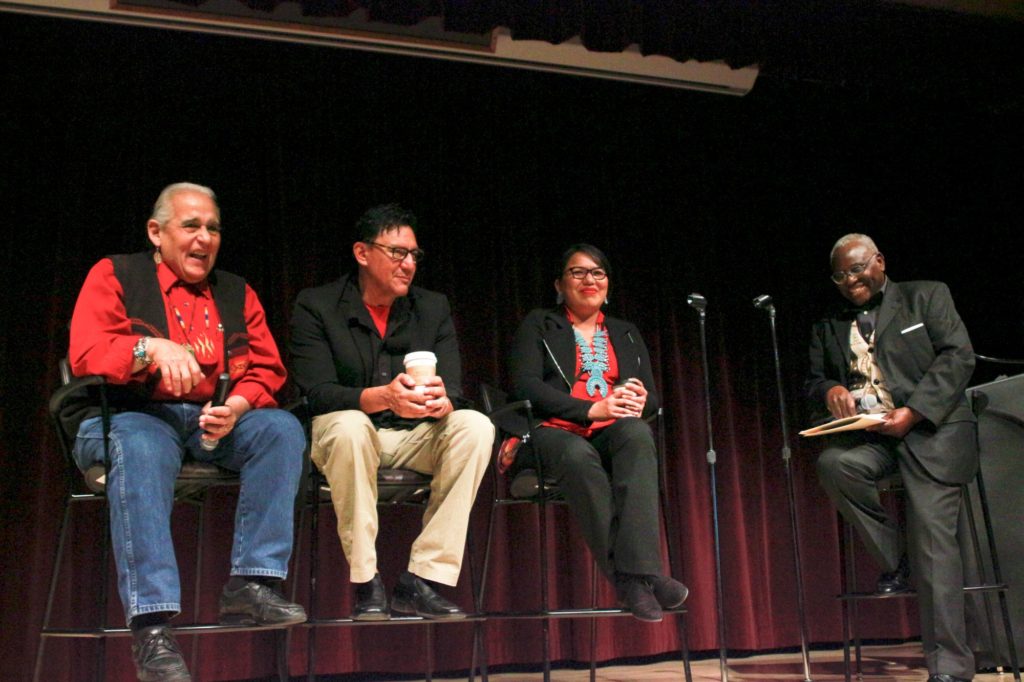
Reconciliation is never easy, which is why it doesn’t happen very often. Reconciliation is not a single event encapsulated in a moment in time. It is a process that begins with a conversation and ends with a relationship restored.
On Nov. 10, the Weber State Center for Diversity and Unity hosted a panel discussion called “Reconciliation After Appropriation: Healing Conversations with Indigenous People” as part of their 11th Annual Native Symposium.
The panel included Native American Advisor for the Center for Multicultural Excellence Tashina Barber, Indian health psychologist Dr. Darryl Tonemah and Ute community leader Laces Harris.
It seems fitting that Native American Heritage Month is commemorated in November, given its proximity to the festivals associated with America’s ironic creation myths: Columbus Day and Thanksgiving. With these celebrations and commemorations, it would seem that all is well, but most are familiar with the trauma and resentment that has affected and continues to affect Native Americans.
“When you forgive, you don’t necessarily forget, so a lot of times, I have had people ask me ‘Why don’t you hate white people?’ and my answer is I can’t really hate. I can forgive to a point, but I can’t really forget,” Harris said. “There are a lot of people I don’t hang around with because their attitudes remind me so often of our history.”
Native people are still fighting to protect their lands, still battling a rigged legal system with its doctrines of discovery and plenary power and still broken by generations of trauma inflicted by boarding schools and profound loss.
“When I was in the third grade, I moved from government boarding school on the reservation to 8 miles into town. I had all these 500 Caucasians, and there was six of us, and we were always being told, ‘Why don’t you come back where you came from?'” Harris said. “So when I get these attitudes and approaches, I always say that our brother comes up (the sun) and he gives us a new day, and if we gave all of what happened yesterday, all the confrontation, negativity, all the different attitudes and we hold onto those things, we will never be able to live fully.”
Harris ended the discussion on a positive note: “What makes us strong as people are the boundaries that we have. The philosophical differences for most of us are non-existent. Our understanding of spirituality are all the same.
“Once we get back to that philosophy and identity, its easy to have an understanding of who you are. If you’re Caucasian, Black, Hispanic, Latino, you are who you are in your heart, not in your mind.”
In the meantime, Native American Heritage Month is an open door for Native Americans to continue telling their stories, even when they make non-Native Americans squirm in discomfort as they are forced to come to terms with a past that was, contrary to the national mythology, often less than honorable.













